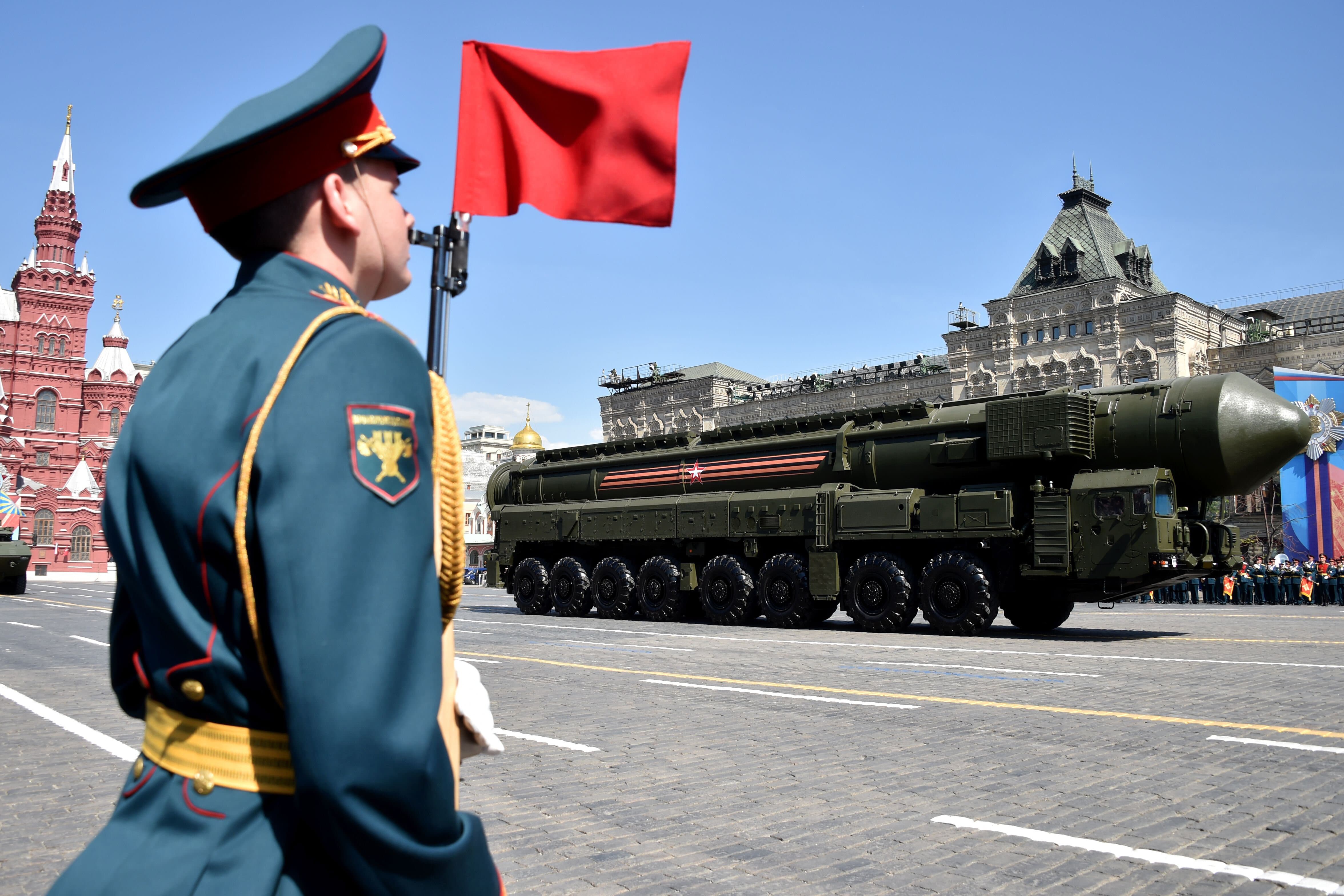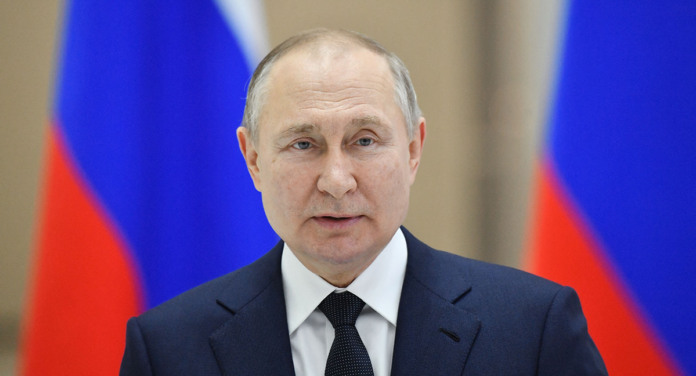The evolving strategic competition between the great powers introduces the counterbalancing forces emerging from different states. The ongoing and unending struggle to dominate the world by expanding the political sphere of influence has remained an undeniable feature of a state’s foreign policy which rarely supports the status quo in international system. Irrefutable forces of wars and their unpredictable ends usually mark significant changes on the realist fabric of world politics in which states pragmatically purse their national interest by acquiring, increasing, projecting and then using various sources of power against their rival. The quest for hegemony, struggle for unlimited power, and expansion of unrestricted influence in this way shapes the contesting behaviours of the states. The complex internal structure of states in addition to their decisions of government based on available choices, usually define the role of states in the international system while describing the positions of states in the hierarchical structure. The debate on rising and declining status of states coupled with emerging realities and trends of international politics have fascinated international academic circles. The demarcation of winners and losers in global strategic clashes is difficult to define but is easy to estimate by rationalizing the evolving scenarios in the international system.
The end of the four-decades long clash with United States and its western allies under the shadow of the Cold War converted the Soviet Union into Russian Federation. The collapse of the global bipolar tussle and implosion of the USSR inaugurated an era of political and economic reform, introduced by the eighth and the last leader of the Union of Soviet Socialist Republics, Mikhail Gorbachev in 1991. The end of the cold war made US the hegemon in the unipolar system and pushed Moscow into political and economic challenges. The global political structure and transitionary phase of international relations dominated by the US tried to redefine the traditional foundations of international geopolitical environment. The post–cold war Russian crisis provided temporarily abundant economic, political, strategic opportunities to the US in world politics which has stretched American muscles over world politics. The advent of the twenty first century and the devastating wave of non-traditional security threats encircled Washington’s quest of global reach in the post 9/11 world.
The rapidly changing strategic landscape of international political affairs has extensively spawned vigorous debate on American decline and rise of others, because Washington is engulfed with wave of economic and strategic challenges. Chinese flag in South China Sea and Russian increasing influence to offset American bellicose behaviour in changing dynamics of world politics have further undermined American globalised values and their unrivalled promotion across the globe. The emergence of US in post-Soviet world, no doubt, inaugurated a new age in international affairs, but the tragic event of World Trade Centre on the political fabric of new world undermined the conventional American thinking. America’s unrivalled standing on international relations has provided Washington a decade of unipolarity to enjoy the transitionary phase of world politics in which the regimes of Gorbachev and Boris Yelstien in Moscow were busy in managing the aftermath of the cold war. Moreover, The Moscow’s weakening control over the international system in the final phase of the cold war provided geopolitical advantages to the US in the Asia Pacific, and Washington created its allies, Japan, South Korea, Taiwan, the Philippines and Indonesia, to influence the Eurasian region.
All the characteristics of becoming a great power in international relations are now supporting Russia’s global standing because the American hegemonic strength is weakening due to the rising wave of multifaceted threats to its role as a sole power globally. Nuclear North Korea, instable Afghanistan, and bleeding Syria are the existing failures of US foreign policy. Furthermore, the South China Sea along with Crimea and Syria are vividly showing dichotic patterns of US foreign policy. The situation in South Asia is also affected by obscure policies which are negatively hampering the regional strategic equilibrium between India and Pakistan. Strategic stability of South Asian subcontinent is increasingly fracturing due to active role of Washington in the ongoing nuclear hostile politics between Islamabad and New Delhi. Moreover, the prevailing dichotic patterns of war on terror have revealed a dangerous face of Washington. The ambiguous disciplines of US– led global war on terror and its global expansion against violent non–state entities have pushed Washington into serious economic crisis which has caused a relative decline of American global hegemony. US involvement in Afghanistan, Iraq, and Syria has brought multiple economic problems in the US parallel to worldwide anti–American antipathy. Washington’s mission of global promotion of American values faced disastrous circumstances in Middle East, East Asia along with former Soviet and pro–Russia regions. In the presence of aforementioned crisis to American global engagements, it has become a challenging and perplexing task for Washington to maintain its strategic balance in global affairs. Therefore, the conventional standard to view US as a leader state and dominating power of the world is vanishing gradually.

The contemporary policies of Russia under well–calculated and well–structured strategic thinking of Vladimir Putin reflects Moscow’s grand strategy to restore its status of great power. The Russian ambition to resume its lost strings of powers by ensuring Moscow’s global reach has become a great concern of scholarly and academic attention. The debate of Russia’s superpower status always shows Moscow’s global role in shaping various unilateral, bilateral, regional and multilateral initiatives. The status of Russia as a great power shows its commitment to become an active part of the international community by creating several multilateral platforms. Moscow is member of the group of twenty major economies under G20. The group of nineteen individual states along with European Union founded in 1999 recognized Russia as a strongest economic power. Moscow is considered as one of the transcontinental states in the Council of Europe – a group of 47 states created in 1949. The European states also use Russian as an official language of Council of Europe. Russian is among six official languages of Organization for Security and Co-operation in Europe (OSCE). Moscow joined OSCE on 21 November 1990 as USSR in its Paris meeting which is known as Paris Charter or Charter of Paris for a New Europe. On November 1998, Russia became member of Asia–Pacific Economic Cooperation (APEC) – a group of 21 nations created in 1989 for the promotion of free trade in Asia Pacific region. Moscow is the founding member of Shanghai Cooperation Organization (SCO) or commonly known as Shanghai Pact – a Eurasian based political, military, and economic forum established in 2001 which was initially called Shanghai Five in 1996. The northern Eurasian economic union under Eurasian Economic Union (EAEU) was signed by Russian leaders in 2014. Furthermore, Duma decided to energetically be involved in international relations by subscribing Moscow to World Trade Organization (WTO), Commonwealth of Independent State (CIS), and Collective Security Treaty Organization (CSTO).
Geographically the largest and transcontinental position of Russia contains one eight of the world’s area which makes it the ninth populated state where eleven different time zones are in practice. As one of the leading producers of oil and natural gas internationally, Russian economy relies heavily on natural resources in the evolving global economic antagonism of states. It is widely believed that Moscow contains 30 percent of world’s natural resources which has made Russia capable to effectively counter the anti–Russian economic behaviours emerging in the forms of sanctions from trade Western lobbies. The strong will of Russia to balance global political affairs by emphasizing the Moscow global role in neutralizing the rival gatherings of anti–Moscow states parallel to resuming its superpower prestige is becoming now an unquestionable reality. No doubt, the post-cold war dismantled the Soviet Union and granted temporary victory to United States, but the supremacy of American values in international global affairs are mired in serious challenges.
As a recognised nuclear weapons state and a member of the nuclear club, Russia possesses the largest stockpiles of nuclear weapons. The designated nuclear status provided by NPT to Russia granted Moscow the status of superpower which enhanced its status in global political affairs. As a nuclear power and permanent member of United Nation Security Council, Russia has always remained a key player in world politics. The Russian government is actively collaborating with the US in global efforts for maintaining global peace and security while preventing threats to its global peaceful aspirations. International peacekeeping missions activate Moscow’s role in UN mission of military observers in Middle East, Western Sahara, Democratic Republic of Congo, Cote d’lvoire, Liberia and Sudan.
The Russian struggle to counter balance international political system echoes Moscow’s ambitions to become a superpower. The collapse of the Soviet Union and dismantlement of communist forces provided sufficient opportunities to US for dominating the world. The advancement of American values across the globe in the post–cold war era proved to be successful international campaign of Washington. The beginning of the twenty first century and American initiation of global counterterror campaign intensely engaged US in world politics. Washington’s involvement in international political affairs under war on terror has resulted in an overwhelming wave of anti–Americanism which is potentially considered to be an appropriate turning point of world history. Parallel to American global crisis, Russia is focusing on expanding and renewing the traditional domains of its foreign policy. The problems and challenges to American foreign policy in the globalized world can noticeably change the strategic landscape of world politics by shifting the power balance toward Russia. Russian readiness to balance the US dominance by stabilizing the conflict – ridden areas of Ukraine and Middle East shows Moscow’s aspirations to replace US in world politics. A realistic analysis of contemporary tug of war between Washington and Moscow forecast an interesting future of international relations in which America will remain the world power without much of its dominating position. The rise of Russia parallel to gradual decline of US supremacy is challenging for Washington. The global system in which Americans assert Washington’s primacy is now losing importance.




